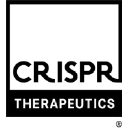Companies
Discover all trending biotech companies
Discover all trending biotech companies

Company Research Platform
Annual Revenue
$ 37,310,000
Global Employees
473
R&D Investment
456700000
This segment is dedicated to developing and commercializing gene-editing therapies for hemoglobinopathies, including transfusion-dependent beta-thalassemia (TDT) and severe sickle cell disease (SCD). The lead product candidate, CTX001 (Casgevy), utilizes CRISPR/Cas9 technology to edit a patient's hematopoietic stem cells ex vivo, enhancing fetal hemoglobin production to alleviate the need for transfusions and reduce vaso-occlusive crises. Research and development efforts focus on optimizing the editing process, improving engraftment rates, and expanding access to treatment. Clinical trials have demonstrated significant efficacy, with many patients achieving transfusion independence. Future opportunities include exploring CTX001's potential in other hemoglobinopathies and developing next-generation gene-editing approaches for improved patient outcomes. Regulatory approvals in multiple countries mark a significant milestone for this segment, positioning CRISPR Therapeutics as a leader in gene-editing for inherited blood disorders.
The oncology segment focuses on developing allogeneic CAR-T cell therapies for the treatment of various cancers. This includes CTX110, a donor-derived gene-edited allogeneic CAR-T therapy targeting CD19-positive malignancies, and CTX120, an investigational therapy targeting B-cell maturation antigen (BCMA) for relapsed or refractory multiple myeloma. CTX130 is being developed for solid tumors and hematologic malignancies. Research and development activities involve enhancing CAR-T cell persistence, reducing off-target effects, and improving tumor infiltration. Clinical trials are underway to assess the safety and efficacy of these therapies. The segment aims to provide off-the-shelf CAR-T cell therapies that are more accessible and cost-effective than autologous approaches. Strategic partnerships are crucial for advancing the development and commercialization of these innovative cancer treatments. Future opportunities include expanding the pipeline with novel CAR-T targets and exploring combination therapies to improve patient outcomes.
This segment is dedicated to developing gene-editing therapies for regenerative medicine applications and various genetic diseases. The focus includes in vivo and other genetic disease programs targeting conditions such as glycogen storage disease Ia (GSDIa), Duchenne muscular dystrophy (DMD), myotonic dystrophy type 1 (DM1), and cystic fibrosis (CF). Research and development efforts involve developing novel delivery methods for CRISPR/Cas9 components, optimizing gene-editing efficiency in target tissues, and assessing long-term safety and efficacy. Preclinical studies are underway to evaluate the potential of these therapies. The segment aims to address unmet medical needs in these rare and debilitating diseases. Strategic partnerships and collaborations are essential for advancing the development and commercialization of these innovative gene-editing therapies. Future opportunities include expanding the pipeline with additional genetic disease targets and exploring novel gene-editing approaches for improved patient outcomes.